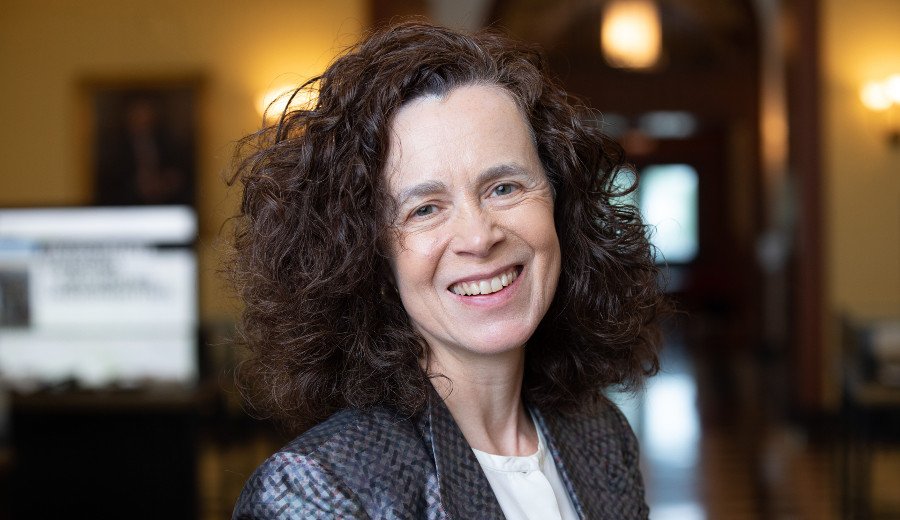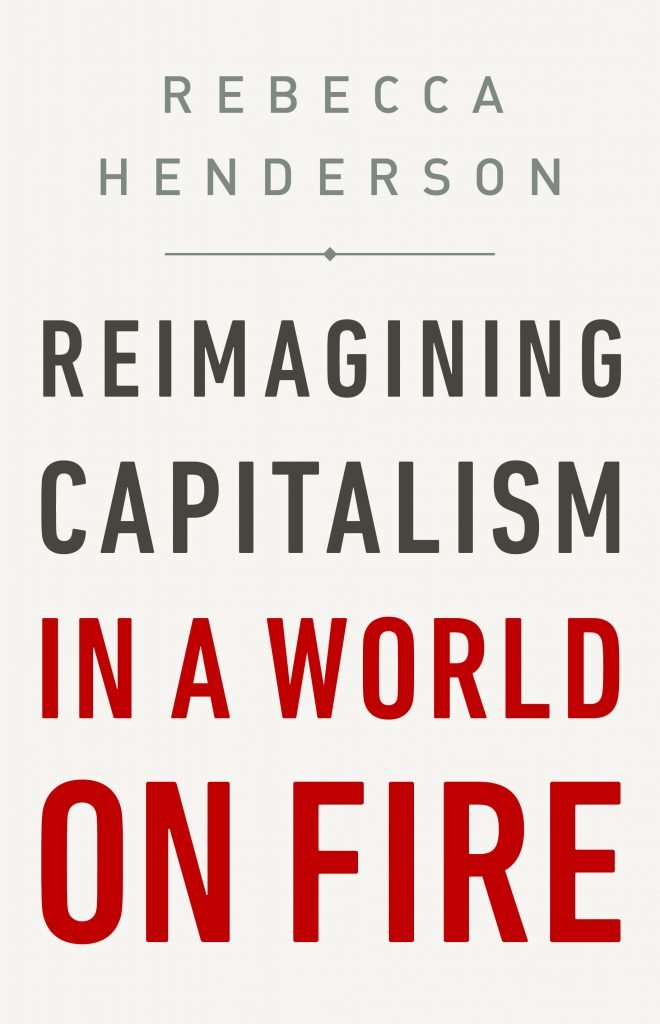Can capitalism solve the climate crisis?

Economist and Harvard professor Rebecca Henderson argues in her latest book that capitalism can be a force for good, if employed correctly.
Capitalism has been getting a hard time lately. This is especially true of the last decade, when a global recession was followed by worldwide protest movements. This year, it took a matter of weeks for an unknown virus to expose how fragile this system is, with more households than ever before examining the behaviours of their governments and economies. The relentless pursuit of profit at the expense of human welfare doesn’t work, seems to be the general consensus.
At the same time the effects of climate change are now very real. As consumers we can reduce the meat we eat and recycle our supermarket bags, but there is only so much this can achieve without fast and sweeping changes from industry.
But how likely are corporations to change the way they operate if they’re yielding ample profile margins as they are? Rebecca Henderson says there’s a number of reasons why they might be persuaded. “Trashing the planet and accelerating inequality isn’t good for business in the long term. Having the great coastal cities underwater, frequent risk of droughts, floods and fires, the destabilisation of the world’s agricultural systems, the high chances that will lead to the destabilisation of the world’s politics – none of this is good for business. This increased volatility is a problem and the world’s supply chains are surprisingly fragile to the kinds of shocks we’re going to see coming from climate change.”
“In the case of inequality, rising prosperity increases market size. If you look at the purchasing power of Europe and the US, it’s many times that of countries where people are basically left at the margins. And within Europe and the US, relegating people to dead end jobs that don’t make living wage and where they have to work all the time, well they don’t make great consumers, so that’s not great for a business that you hope to grow.”
A third reason, she says, is that people on both the left and right are very angry. “There is a serious risk they may bring down capitalism. More than 50 per cent of the population worldwide says capitalism is not working for them. In the US, if you ask people under 30 whether they prefer socialism or capitalism, a majority say they prefer socialism. Now, they probably mean they want decent healthcare, and not this egregious concentration of wealth at the very top. But if you’re a genuine capitalist, it’s the only way you’re going to solve the problems we face.”
The alternative she says, is the populism we’re seeing in European countries such as Hungary, Poland and Turkey, not to mention the UK and the US. “The historical track record of populism is not good. Putin is a classic example. A small group keeps all the wealth and power for themselves, while claiming to represent the greater good of the Russian nation, or whatever the claim is that keeps the populist in power. Research suggests these kinds of populist extractive governments are much less good for economic growth. A few firms do well, if they stay in with the ruling clique, but everyone else is pretty much shut out.”
In Reimagining Capitalism in a World on Fire, Rebecca says a first step towards a solution is for businesses to be purpose-driven, in other words, to become dedicated to solving public problems, and for whom making money and satisfying investors is a means to an end rather than the end in itself. “There’s research consistent with the idea that you can run a firm this way, survive and even thrive, even though it is more expensive. To be authentically purpose-driven you have to sometimes sacrifice short term financial returns, but you develop trust across the organisation. You trigger people’s motivation, who get excited about the work for its own sake. This greatly increases the productivity and innovative capacity of the organisation.”

This will require firms to think about doing business in a very different way. “We need a deep shift in the culture of business, away from ‘my job is to put my head down and make money’ to ‘I am part of an interconnected whole’. But there are hundreds of cases, there are billion dollar business models that address social and environmental problems and make money at the same time. It’s not easy, and they aren’t everywhere, but they absolutely exist.”
She adds that a lot of the early solar and wind farms were purpose-driven firms. “They opened this up for the people that followed” Rebecca says. “A lot of the entrepreneurs in the plant-based food industry, they’re purpose-driven, as well as a lot of the people in the circular economy.”
These firms demonstrate how this business model can work. However Rebecca hastens to add without broad institutional reform climate change can’t truly be addressed. “There has to be a mix of tax and regulation. You have to make it expensive to have a cow that belches methane, because otherwise your cow is competing with alternate solutions that look more expensive. Then you need enforcers, so that when the company that signed the deforestation pledge doesn’t follow through there’s actually a consequence.”
This could be led by governments or by investors. “It first started in mining and minerals, with the banks saying they wouldn’t fund companies with egregious human rights violations” Rebecca explains. “That’s a classic example of collective good enforcement by the markets. It isn’t a wild or crazy idea, it’s starting to happen. We’re seeing groups of investors like the Climate Action 100+, that’s $40 trillion in assets, saying they want to see people’s plans for transitioning away from carbon. I think the investors might help us a very long way on decarbonising.”
So business can help address climate change. But can a capitalist society ever resolve the problem of inequality? “That’s much trickier, because it requires the redistribution of power” Rebecca says. “If I’m really going to fix inequality, I’m going to have to think about a wealth tax and a much stronger government, which many wealthy individuals don’t feel very comfortable with. Investors might be willing to go after companies that badly push people to the bottom, but really the only way to solve inequality is through the collective. When we look across history, the only way we’ve really raised our living standards is through organised labour representation.”
Whichever way things swing, it’s clear the pandemic has created a catalyst for society as we know it. “Sometimes I feel really encouraged that the pandemic has revealed how fragile our system is, how dependent we are on each other and how much we need a functioning, capable democratic government. I think that Black Lives Matter in combination with Covid has been helpful on issues of economic inclusion. Six months ago I barely talked about inequality until the very end of a presentation. Now I often open with inequality and racial justice, and how corporations have to think about this.”
“Of course I can see the darkest case, where we come out of this poor with further concentration of wealth, everybody desperate and we just keep doing the same old thing. But on balance I’m more hopeful about these things now than I was before the pandemic.”
Reimagining Capitalism in a World on Fire is out now on Penguin
Leila Hawkins

